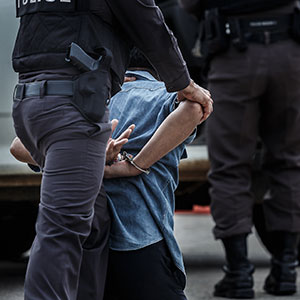
Facing criminal charges can be an overwhelming and stressful experience. As a Maine defense attorney, I understand that one of the best ways to alleviate some of the anxiety associated with this process is to have a clear understanding of what to expect in court. In this post, I aim to shed light on the different aspects of the legal process in Maine, focusing on what defendants can generally expect when they find themselves in a courtroom.
1. Arraignment:
Upon your initial appearance in court, a judge will formally read the charges against you and inquire about your plea. Your plea can be guilty, not guilty or no contest. No contest is where you do not contest the charges but you are not admitting guilty. It is important to understand that a person who pleads no contest will be convicted and sentenced exactly the same as a person that pleads guilty. I often see people use a no contest plea as a sort of moral victory. Agreeing to be convicted without a fight is not any type of victory for a Defendant. This is not to say that no contest pleas are completely useless. A no contest plea cannot be used against you as an admission of guilt in a separate proceeding where your criminal case may be relevant or the subject matter. For example, many people should plead no contest if they wish to resolve their criminal case but would like to be able fight a potential civil suit based upon the same event. In Maine, there are various rights that a Defendant must be aware of before entering a plea. Those rights include the right to know the substance of the charges against you, the right to counsel, the right to remain silent, the right to know the maximum possible sentence as well as any mandatory minimum sentence, and the right to a trial by jury.
2. Pretrial Motions:
Following the arraignment, both the prosecution and defense can file pretrial motions. These are written arguments requesting the court to take specific actions or make rulings on various matters. Examples of pretrial motions include requests for suppression of evidence, modification of bail or bail conditions or dismissing certain charges.
3. Discovery:
The discovery process allows both parties to exchange information relevant to the case. As a defendant, you should expect your defense attorney to review the evidence against you, consult with you about the evidence, retain any necessary expert witnesses or investigators and generally to do everything necessary to build the defense strategy. Cooperating fully with your attorney during this phase is crucial.
4. Plea Bargaining:
If a plea agreement is offered, your attorney will present it to you. Plea bargaining is a negotiation between the defense and prosecution, aiming to reach a resolution without going to trial. It may involve reducing charges or recommending a specific sentence. In Maine, plea bargaining generally happens before and during the Dispositional Conference. Ultimately, the decision to accept or reject a plea offer rests with you, the defendant. If your case is not resolved after the Dispositional Conference, plea bargaining can still occur but the case will move one step closer to trial.
5. Trial:
In Maine, docket call is the first court event that signals a case is close to trial. Docket call is essentially a court date used by the Judge to manage the Court’s docket (list of cases). Cases on a docket call list can be moved off the docket call list if requested by either party, continued to the next docket call list, or moved to Jury Selection. Jury selection is the Court date where you and your attorney will select a jury for your upcoming trial. Typically, your trial would occur in the same month that you select a jury. I often use a baseball analogy to explain the significance of each court event. The arraignment is like the first inning. There’s been some work ahead of time, but the game just started. The dispositional conference is like the fifth inning. A lot can still happen in the game and it is far from over; but it is also no longer the beginning. The docket call is like the seventh inning stretch. We are now into the late stages of the game where the intensity is rising. Jury selection is basically the final inning. Some cases end up being resolved at jury selection or right beforehand although Judges generally don’t like plea bargains to occur at this late juncture. The trial itself is extra innings. Only a very small percentage of cases go to to trial just like very very few baseball games go to extra innings. It is rare, but sometimes we need that winner take all stage to resolve things. If a case proceeds to trial, evidence will be presented, witnesses will be called, and both sides will argue their case before a judge or jury. Your defense attorney will vigorously advocate for your innocence and challenge the prosecution’s case. It is important to trust your attorney’s expertise and maintain open communication throughout this process.
Conclusion:
Navigating the criminal justice system is a complex and challenging journey. However, understanding what to expect as a defendant can help alleviate some anxiety and provide a sense of control. This overview has touched on the key steps of the legal process in Maine, highlighting the role of a defense attorney in fighting for your rights. If you find yourself facing criminal charges, seeking knowledgeable legal representation is crucial to protecting your interests and ensuring a fair trial.
William Ashe is an experienced trial attorney with a career track record of determined
effective representation and consistent sustained success on behalf of his clients. He has
been named to the National Trial Lawyers Top 100 Criminal Defense Attorneys every year
since 2014 and has a perfect 10.0 rating by the lawyer rating site Avvo. (207) 813-2935